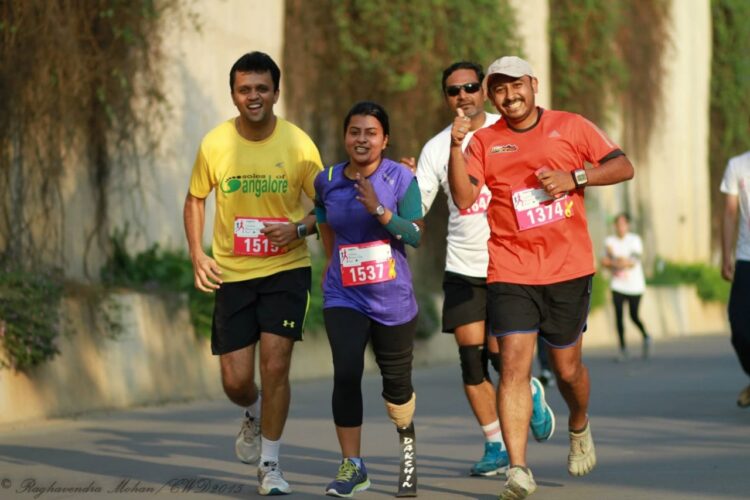
Sharp Edges, Steady Stride – The Journey of Kiran Kanojia, India’s First Female Blade Runner
As India’s first female blade runner, Kiran Kanojia has become a symbol of resilience and inspiration. Let’s dive into the story of her remarkable journey.
In the bustling town of Faridabad, Kiran grew up in a modest household of five—her parents and three siblings. From an early age, Kiran was known not for privilege, but for persistence. Her eyes sparkled with dreams, and her heartbeat with an unshakable resolve to rise beyond the limitations set by her circumstances.
With her father’s unwavering belief in her potential and her own dedication to education, Kiran excelled in academics. She topped her university, earning a full fee waiver and carving a path to success through sheer merit. Her determination paid off when she secured a coveted campus placement at Infosys in Hyderabad—an achievement that brought pride to her family and hope to every girl in her neighbourhood.
But fate had other plans. In 2011, on a journey home to Faridabad, Kiran’s life took a tragic turn. A group of robbers attacked her on the train and pushed her off. The fall cost her left leg—and nearly, her spirit.
For many, that would have been the end of the road. For Kiran, it felt like her world had shattered. The pain wasn’t just physical—it was emotional, mental, and deeply personal. For three long years, she battled the darkness of despair.
But amid the silence of suffering, two voices kept her going—her father’s quiet strength and the persistent encouragement of her doctor. Together, they helped her believe again. Stand again. Dream again.
And so, Kiran with her will, made a decision that changed everything. She chose to run—not away from life, but toward it. She embraced blade running, and in doing so, reclaimed her identity not as a victim, but as a victor.
In 2017, Kiran won Woman Transforming India Award by Niti Aayog. What began as a personal fight became a symbol of hope for thousands. She went on to complete six half marathons—each 21 kilometers of grit, sweat, and triumph. Each finish line she crossed sent a powerful message: Challenges don’t define us. How we respond to them does.
When Kiran looks back at her life before 2011, she sees not a tragedy, but a transformation. What could have ended her journey instead ignited a legacy. She lives with her loving husband and two beautiful children, balancing motherhood and her mission with grace and grit.
Today, Kiran is preparing to represent India in the Paralympics. Kiran’s journey is one of unimaginable courage and unwavering determination. But no journey, however inspiring, should be walked—or run—alone. Despite representing the very soul of resilience, Kiran faces barriers (and so are others) that can be overcome—not by willpower, but by collective support.

Government and corporates to come forward with sponsorships, mentorships, and CSR initiatives and invest in adaptive sports technology, prosthetics, and coaching ecosystems. There is a need for support from both the government and corporates, as the cost of prosthetics is extremely high. It becomes a significant challenge for individuals like Kiran to access high-end prosthetic limbs that offer greater mobility and independence in daily life.
Kiran doesn’t run alone and not just for medals. She runs to change how society sees this condition, and to inspire millions who feel left behind, for every amputee who needs to believe again. But now she needs us—not just to cheer from the sidelines, but to step onto the field with her.
Her story teaches us that the sky is not the limit—it’s just the beginning.





